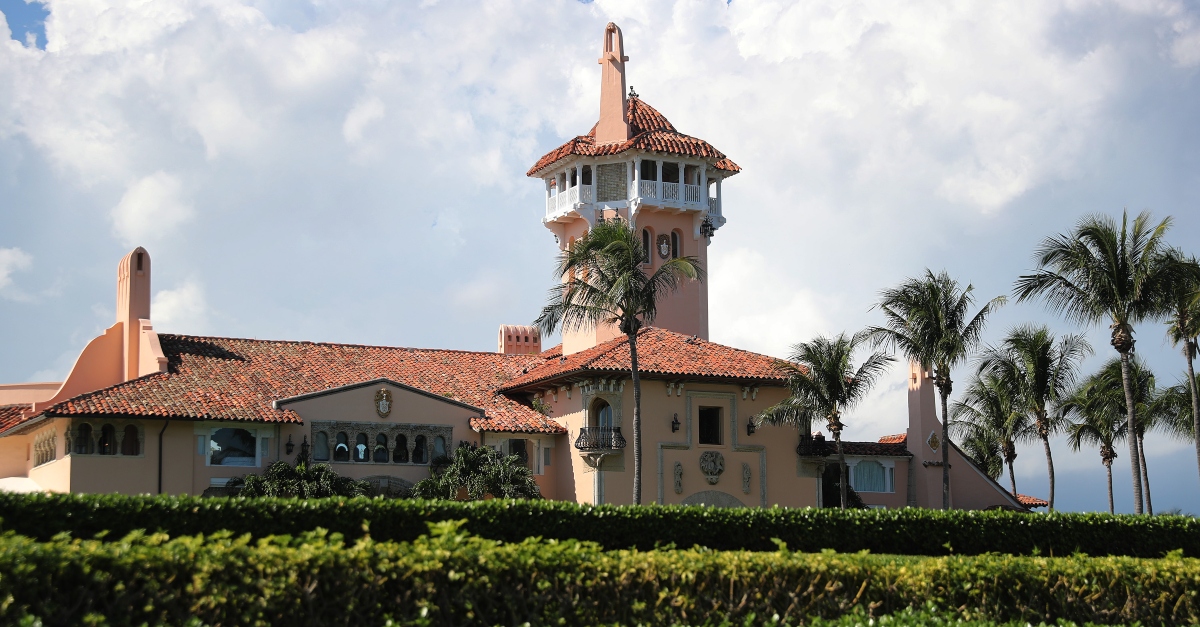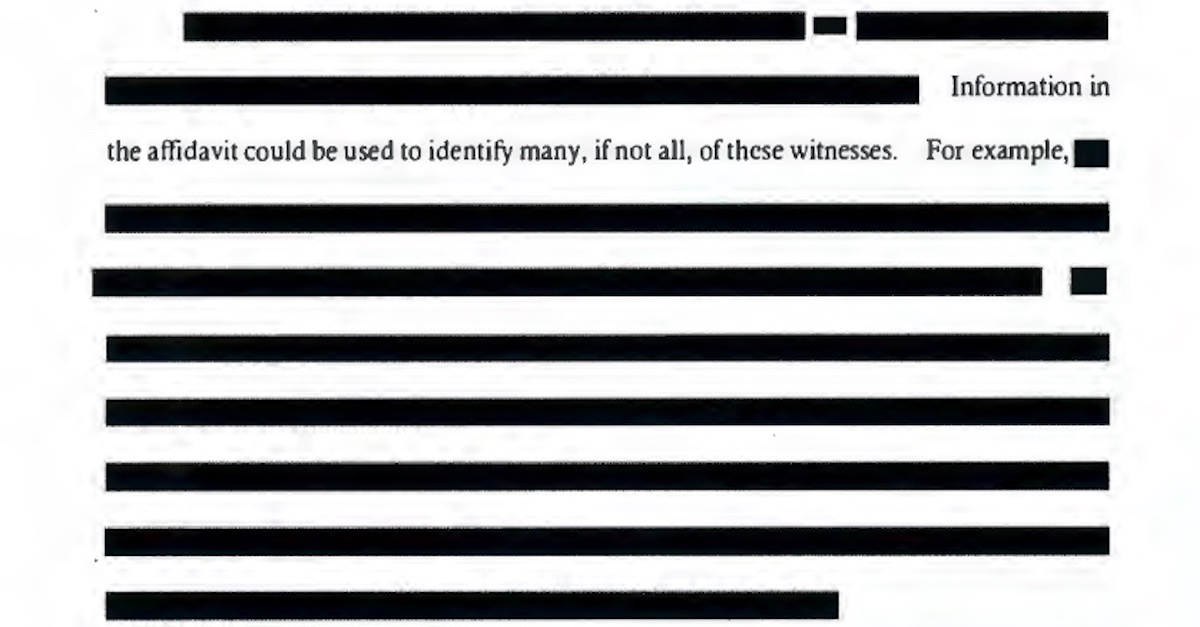
Image of Donald Trump’s Mar-A-Lago compound in Florida
A court filing by Justice Department lawyers reveals that a “significant number of civilian witnesses” were involved in the investigation into classified documents allegedly held at former President Donald Trump‘s Mar-a-Lago compound in Florida, and that extensive redactions to the search warrant affidavit are necessary in order to protect the safety of those witnesses and others.
The search warrant documents were unsealed Friday pursuant to an Aug. 22 order by U.S. Magistrate Judge Bruce Reinhart.
The DOJ’s memorandum of law supporting its proposed redactions to the search warrant affidavit in support of the Aug. 8 search of Mar-a-Lago said that civilian witnesses, as well as law enforcement, were part of the investigation into whether Trump had illegally kept presidential records and classified documents at his Florida home.
The search warrant was supported by a probable cause affidavit that was also unsealed Friday after motions by news organizations and demands from the former president himself that the documents be released.
“[T]he materials the government marked for redaction in the attached document must remain sealed to protect the safety and privacy of a significant number of civilian witnesses, in addition to law enforcement personnel, as well as to protect the integrity of the ongoing investigation and to avoid disclosure of grand jury material in violation of the Federal Rules of Criminal Procedure,” the government’s motion said.
The DOJ identified five categories of information it wanted kept under seal “in order to protect the safety of multiple civilian witnesses whose information was included throughout the affidavit and contributed to the finding of probable cause, as well as the integrity of the ongoing investigation.”
Those five categories, according to the government, are as follows (citations omitted):
(1) information from a broad range of civilian witnesses who may be subject to “witness intimidation or retaliation;
(2) information regarding investigative avenues and techniques that could provide a roadmap for potential ways to obstruct the investigation;
(3) information whose disclosure is prohibited under Rule 6(e) of the Federal Rules of Criminal Procedure (“Rule 6(e)”), such as grand jury subpoenas, testimony, and related material;
(4) information whose disclosure could risk the safety of law enforcement personnel; and
(5) information whose disclosure could harm “legitimate privacy interests” of third parties[.]
The government attached a chart detailing the information in these categories. That document is almost entirely redacted, with only “agent safety” being provided as a reason for withholding information.
Much of the motion is similarly heavily redacted, with only generic statements as to witness’ safety being made available.

“FBI agents who have been publicly identified in connection with this investigation have received repeated threats of violence from members of the public,” one unredacted portion of the motion reads. “Exposure of witnesses’ identities would likely erode their trust in the government’s investigation, and it would almost certainly chill other potential witnesses from coming forward in this investigation and others.”
The government also cites the need to protect the investigation itself, arguing that if the “road map” was revealed, it could jeopardize law enforcement efforts.
“Although the public is now aware that the government executed a search warrant at the premises owned by the former President and seized documents marked as classified, the affidavit is replete with further details that would provide a roadmap for anyone intent on obstructing the investigation,” the memo says.
Examples of such possible obstruction are redacted from the motion, although one sentence indicates that there were multiple examples of obstruction risks.
“In short, the government has well-founded concerns that steps may be taken to frustrate or otherwise interfere with this investigation if facts in the affidavit were prematurely disclosed,” the motion says.
Among the reasons the government also gave for wanting to unseal the documents was “the former President’s public confirmation of the search and his representatives’ public characterizations of the materials sought[.]”
Read the filings, below.
[Image via Joe Raedle/Getty Images.]